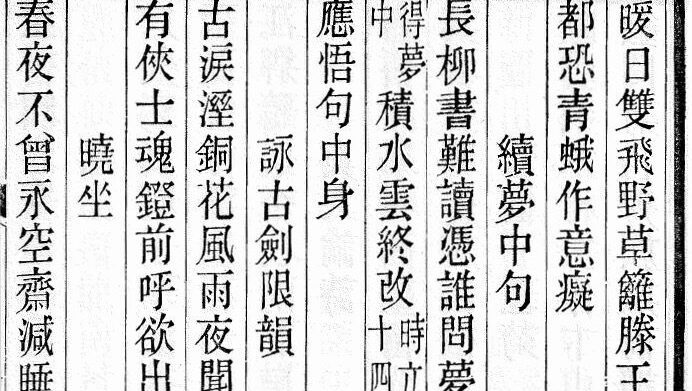
I Dream, Therefore, I Write: A Reflection on the Dreaming Mind and the Process of Literary Creation in Early Modern China
Yiren Zheng, Dartmouth College
April 2, 2025 · 4:30 pm—6:00 pm · 202 Jones Hall
Program in East Asian Studies

Between the medieval and the early modern periods, numerous poets, including Su Shi 蘇軾 (1037–1101) and Dong Yue 董說 (1620–1686), reported composing poetry within their dreams. Upon waking, they usually only remembered one or two lines, but they made an effort to revise the dream-inspired fragments into full-fledged verses. As these writers went on contemplating this peculiar process of literary creation—that is, co-authoring a text with their dreaming minds, they produced extensive reflections on the connection between the dreaming mind and the experience of writing and reading literature. Both the experience of dreaming and that of writing and reading literature are often mystified, since the celebration of gifted, renown poets and the emphasis on ingenuity and eloquence in the Chinese literary history ends up obscuring the specific conditions that enable literary creativity. Since dreaming and writing are both means of simulating hyper-sensory virtual experience, literary authors often envisioned that their writing would come across like dreams to readers. At the same time, a text resulting from a collaboration with someone’s dreaming mind often emphasizes the idea that writing can be an autonomous process taking place independently of a human author. In my talk, through an analysis of the seventeenth-century poet Dong Yue’s poems, essays, and dream journal entries, I show that attending to the similarities between dreaming and literary composition is a way of making philosophical inquiries on the creative process and on how to write and read as a literary author. By reflecting on the role that the dreaming mind plays as an autonomous and unruly source of literary creativity while exploring conceptual resonances between literary texts from early modern China and contemporary discussion of posthumanism, this talk also challenges the understanding that composing poetry in the Chinese context is always a deliberate, conscious process.















